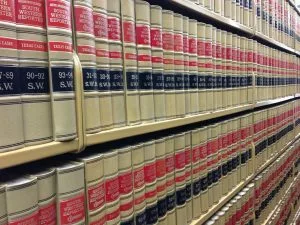
Depositions are an enormously useful and important resource and typically the most effective way for parties to obtain information necessary for trial. Illinois rules provide for two types of depositions: discovery depositions and evidence depositions. See Ill. So. Ct. R. 202. Illinois is unique in that it is the only state that recognizes two different types of depositions. Understanding the distinction between the two is important in litigating a case and preserving the ability to introduce certain evidence at trial. While both are designed to elicit relevant evidence, the scope of what is relevant, and ultimately what is proper to ask, differs between the two types of depositions.
Discovery depositions are used for the purpose of exploring the facts that are not only relevant to the case, but also will lead to the discovery of additional evidence. In this regard, the scope and manner of questioning in discovery depositions is given great latitude. Conversely, evidence depositions are used for the purpose of preserving evidence for trial. The questioning in an evidence deposition is limited by the rules of evidence. As a result, the scope of inquiry in a discovery deposition is broader than the questioning allowed in an evidence deposition. In practical terms, the initial deposition of a witness normally will be a discovery deposition given the wider scope of inquiry afforded. Discovery depositions are usually less formal than their counterpart. Counsel participating in an evidence deposition should treat it as if he or she were at trial.
A party electing to conduct a deposition must specify in the notice or subpoena served on the witness whether the deposition will be a discovery deposition or evidence deposition. Absent a specification, the deposition will proceed for discovery purposes only. Because the type of deposition dictates the scope of questioning and what will ultimately be admissible at trial, it is important that parties understand the significance in specifying the type of deposition he or she intends to take.
The permissible uses for discovery and evidence depositions at trial are enumerated in Illinois Supreme Court Rule 212. A discovery deposition may be used at trial (i) for impeachment, (ii) as an admission of a party, (iii) if otherwise admissible as an exception to the hearsay rule, and (iv) for any purpose an affidavit may be used. See Ill. So. Ct. R. 212(a)(1)-(4). Additionally, under subsection (a)(5) of Rule 212, a discovery deposition of a party who is not a controlled expert witness may be used as evidence at trial under very limited circumstances. A party seeking to use a discovery deposition as evidence at trial must establish that reasonable notice of the deposition was given to all parties, the deponent’s evidence deposition has not taken place, the deponent is unable to attend or testify due to death or infirmity, and the evidence will do substantial justice between the parties.
The use of evidence depositions at trial is much more expansive. In addition to the above purposes, evidence depositions may also be used for any purpose at trial if the deponent (a) is dead, ill or imprisoned, (b) is out of the country, or (c) cannot be served with a subpoena. A court, upon motion, can also allow an evidence deposition to be used in lieu of live testimony if exceptional circumstances exist. Evidence depositions of a physician or surgeon may, upon motion, be introduced in evidence at trial regardless of the availability of the deponent.
Practitioners must understand the distinctions between discovery and evidence depositions and be cognizant of the importance of properly preparing for and participating in depositions given the possibility that the depositions may be used as evidence at trial themselves.

"*" indicates required fields